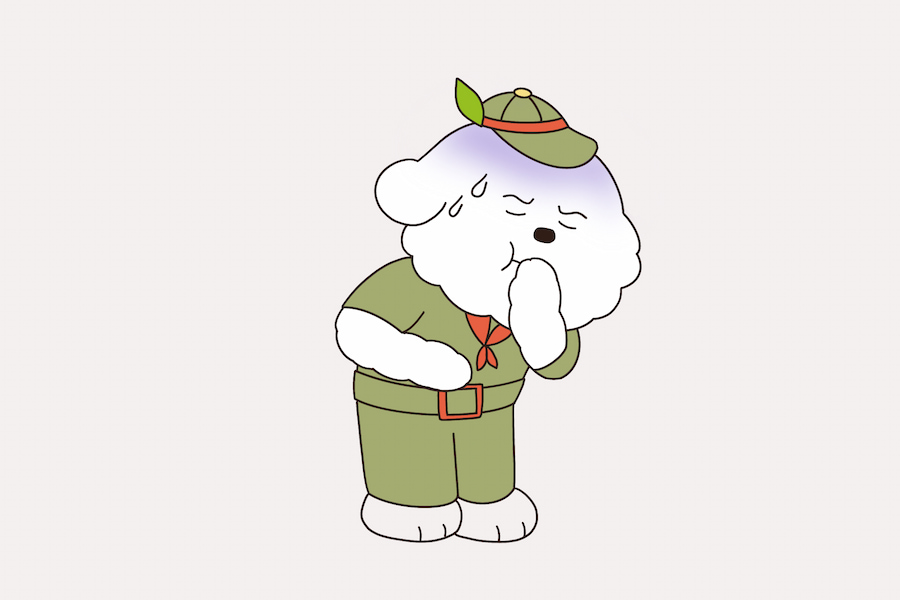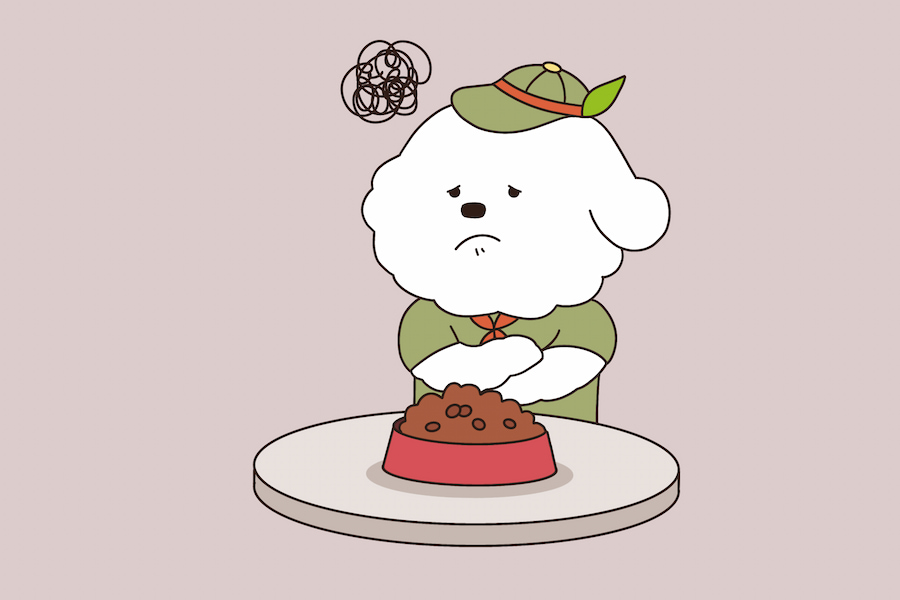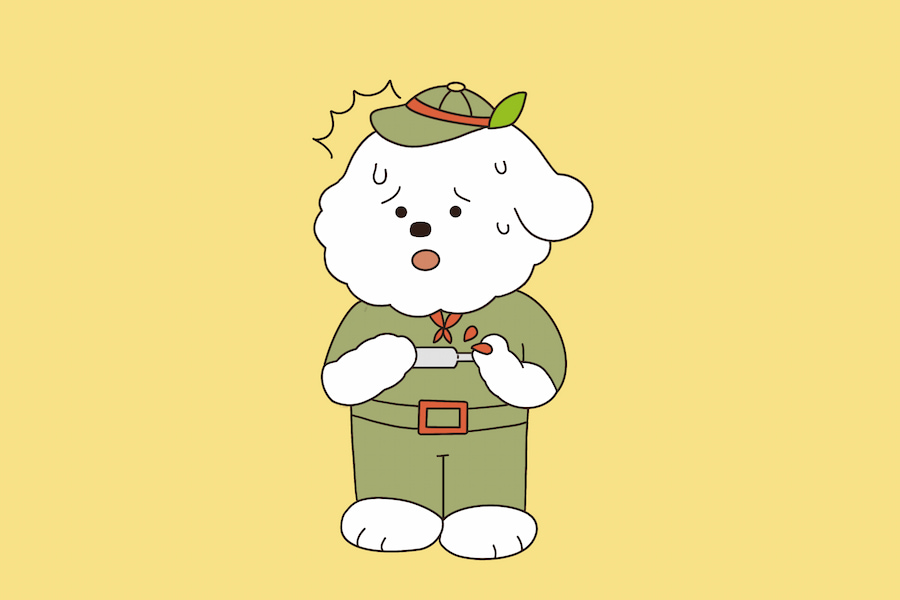Dog diarrhea is one of the most severe and frequent digestive issues dogs experience with their owners. Diarrhea is not only a mess and inconvenient; it can also be a sign of serious disorders in your dog’s gastrointestinal tract.
It is normal to have stomach upsets with slight diarrhea occasionally, but continuous or severe diarrhea points to another problem.
Well, as much as we will offer suggestions on what you are supposed to do when your dog rejects food. But, let us first address what you should do when you overfeed your dog or if they ingest something they should not have.
Well, as much as we will offer suggestions on what to do when your dog has diarrhea, but first, pay attention to whether your dog has overeat or if they have eaten something they shouldn’t have.”
This guide will cover all information you may wish to know about diarrhea in dogs. We’ll explain the causes and give the correct treatment and diet to make them comfortable.

Lee&Pol offers dried pollock that’s easy on the stomach and intestines, thoroughly remove salt and bone over 24 hours, making it a gentle treat for dogs with diarrhea!
What Is Dog Diarrhea?
Diarrhea in dogs is one of the digestive system issues caused by frequent, loose, or watery bowel motions.
Since the gut is just like an elastic, it can stretch, so occasional mild diarrhea can be normal if, let’s say, your dog has fed on some material found on the roadside.
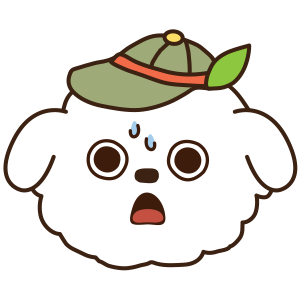
However, if stool for several days or has features of severity such as prolonged-lasting, vomiting, or looking sleepy, it may point towards some illnesses that require veterinary care.
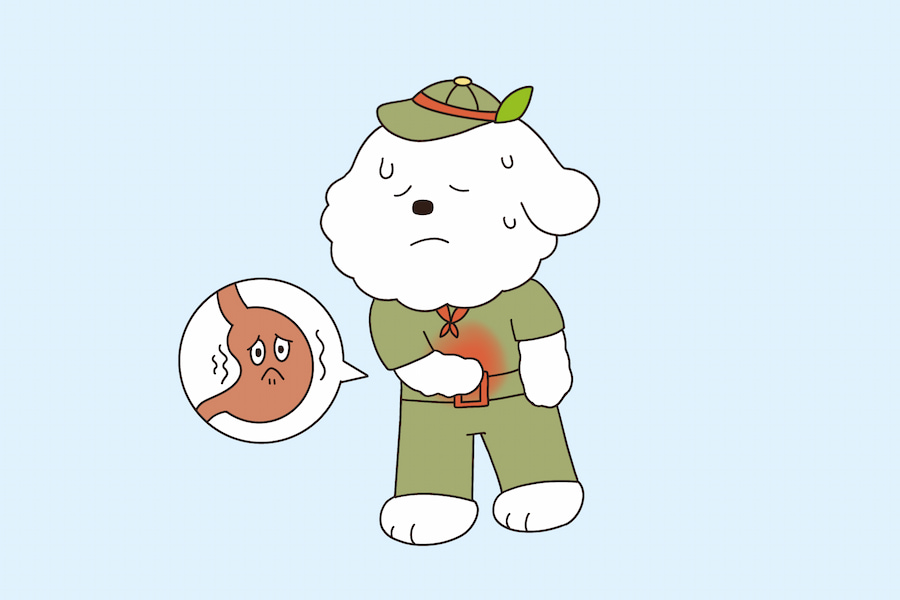
Causes of Dog Diarrhea
Do you want to learn about the reasons for your dog’s diarrhea? There are several causes for this. It may vary from mild to dangerous. Let’s take a deeper look at the common causes:
Infections and Parasites
Bacteria, viruses, and parasites can attack your dog’s intestines and can be the reason for diarrhea. Dogs easily get infected since they drink water and eat or tread on items, including feces and food, which may harbor the disease-causing agents.
Food Intolerance or Allergies
Dogs are just like us and can be allergic to some food foods. Most causes are with the foods of dairy, gluten, or certain meats since bowel movements are a way the body tries to get rid of what it cannot digest.
Stress and Anxiety
Stress paves the way for stomach problems in dogs, too! It is therefore important to be aware that things such as moving, new people, or even a different routine can cause digestive problems.

We know that stress diarrhea is usually temporary, but your pet will remain very uncomfortable throughout the duration.
Types of Dog Diarrhea
Dog diarrhea can appear in different forms; each type can point to specific causes or health issues. Here are some common types to look out for:
Acute Diarrhea
Sudden diarrhea that lasts for a short duration, which can be up to 24 to 48 hours, is referred to acute diarrhea. This type may be provoked by diet change, stress, or something strange.

Most of the acute diarrheal episodes follow a self-limited course and can be managed with just an adequate amount of fluids and food.
Chronic Diarrhea
Chronic diarrhea is present for more than a week and may be associated with underlying illnesses. It can be food allergy, IBD or intestinal parasites.

This type of diarrhea may demand a vet’s check since it can cause a lack of certain nutrients or weight loss.
Small Bowel Diarrhea
Small bowel diarrhea means that diarrhea comes out from the small intestine. It normally leads to the passage of voluminous, unsolid or soft stools, but not necessarily with increased frequency. Here are some key characteristics:
- Volume: Large
- Frequency: Mild, not as often as large bowel diarrhea
- Appearance: Sleek or mucousy, with parts of the foods they are fed remaining undigested.
- Symptoms: Sometimes associated with slenderness, vomiting, or lethargy, especially if severe
Such diarrhea is closely associated with problems in the upper gastrointestinal tract, food sensitivities or intolerance, infection or disorders involving impaired digestion.
Large Bowel Diarrhea
Large bowel diarrhea also occurs in the colon or the large intestine, where water is normally reabsorbed. When damaged, this area causes the person to have many small bowel movements. Here’s what to look for:
- Volume: Small to moderate
- Frequency: Frequent, sometimes the need is urgent
- Appearance: May be mucoid (covered with mucus) and can contain fresh blood (bright red).
- Symptoms: Squeezing while passing stool, getting up more often at night, and occasionally complaining of pain
What Does the Color of My Dog’s Diarrhea Mean?
When your dog is healthy, his feces resemble chocolate brown. However, in diarrhea, the color of your dog’s poop changes. Knowing the color can guide your veterinarian on what may be causing the digestive issues at your dog’s disposal.
Brown:
The regular color of dog stool is brown, and diarrhea is also brown if it is not causing serious health concerns. It is not generally a problem unless in conjunction with other symptoms.
Green:
Worms that may be green are indicative that your dog has ingested a large amount of grass. However, as with jaundice, it may also suggest problems with the production of bile or other gastrointestinal problems.
Yellow:
Yellow-colored feces may be an indication of an irritated stomach, commonly caused by a diet high in fats and another digestive problem relating to bile from the liver. It is used at times in dogs with gallbladder and liver problems.
Black or Tarry:
Formed feces that are black or have a black outer coating could be the result of something your dog ate, but passing black and tarry loose stools is an emergency. Tarry, black dog poop implies that blood has traveled through the stomach and been digested.

If your dog has black and tarry feces, seek immediate veterinary assistance.
Red or Bloody:
Clearly visible bright red blood in diarrhea mostly indicates lower G.I. tract bleeding that may be due to lesions in the colon or rectum. This can be caused by such things as colitis or infections, or even more often, minor traumas to the digestive tract.
White or Gray:
Anything other than brown, such as white or gray-colored stoles, may be associated with bile duct problems or inadequate fat absorption. Another thing that changes its color is useful to discuss with the vet. This color change is also worth discussing with your vet.

Lee&Pol’s dried pollock is not only low-fat and high-protein but also easy to digest, which can help prevent and support recovery from diarrhea in dogs.
How to Treat Diarrhea in Dogs
If your dog has had one or two runny or soft stools, you should give your dog a chance to digest by withholding food for 12 – 24 hours.
A monotonic diet for at least 24 hours might help your pup’s issue.

White rice, dried pollock, kabocha squash without seasonings can benefit your dog’s recovery after diarrhea.
What to Feed a Dog with Diarrhea?
Now, what should you feed him to recover faster? We have compiled a list of nutritious food and fruits that give them energy and make their digestive system work well.
Dried Pollock
Dried pollock is a low-fat fish rich in protein and with omega-3 fatty acids that could easily be dried. It has the potential of tropical use in inflammatory bowel disease due to its ability to provide a form of protein that is gentle on the digestive tract. It is perfect since it is easy to digest, high in lean protein, and low in fat.

You can sort of give this small quantity of dried pollock as a snack or with other dog-friendly diets to serve as a balanced, calming diet.
Kabocha Squash
Kabocha squash is an ideal choice on your list. Kabocha squash is abundant in fiber, which can help firm up loose stools while also providing essential vitamins.
Carrot
When steamed or boiled, carrots are easily digested. They also include fiber, which can help firm up stools.
Banana
Bananas are easy on the stomach and contain potassium. It can balance electrolytes that may be lost during diarrhea.

Lee&Pol combines dried pollock with freeze-dried vegetables and fruits to provide a nutritious treat that aids in your dog’s recovery after diarrhea!
Conclusion
Treating diarrhea in dogs can be as messy and stressful as it is for the dog owner, but it can be easily treated with the right approach.
Knowing it, its cause, and how to address it from fasting and rehydration to a light and more natural diet, and the addition of some natural supplements makes such a huge difference.
Always bear in mind that if something is painful and uncomfortable or if these signs fail to subside, seek professional help from your vet.
FAQ
Dogs’ diarrhea usually has a bad odor caused by enzymes and bacteria that have not been digested in the stomach. Hence, the smell may vary; if there is stomach upset or infection, the scent may also change.
Short fasting means a period not longer than 12 to 24 hours and is helpful when giving the digestive system a chance to rest. On the 3rd and 4th days, return to normal meals but take the first meal as boiled rice and dried pollock. It will be very beneficial for its stomach.
Dog diarrhea may be preceded by dietary changes, infections, stress, or the presence of another sickness. That is why, if the cases are extended, you should consult with your veterinarian.
Yes, they can get that way, although intense exercise can induce bowel movements and cause frequent diarrhea. If you follow this pattern, then you should alter the intensity of the exercises and observe if it avoids them.
Yes, dogs’ digestive problems might be induced by stress from routine, the environment, or changes in family dynamics.
